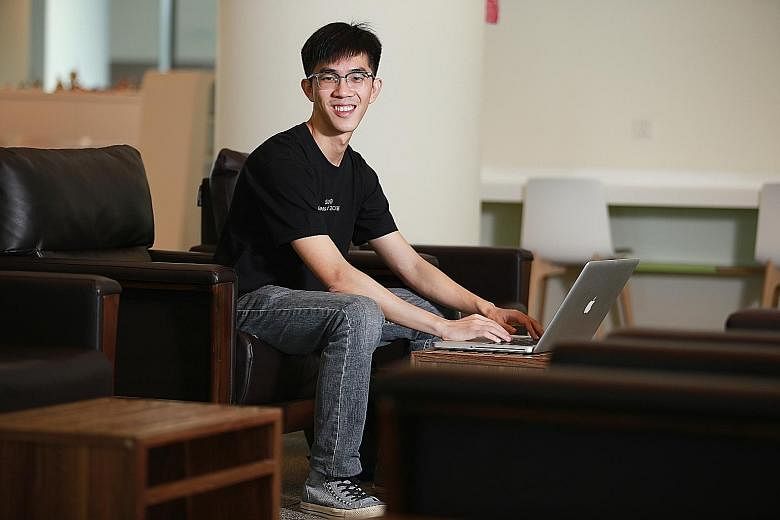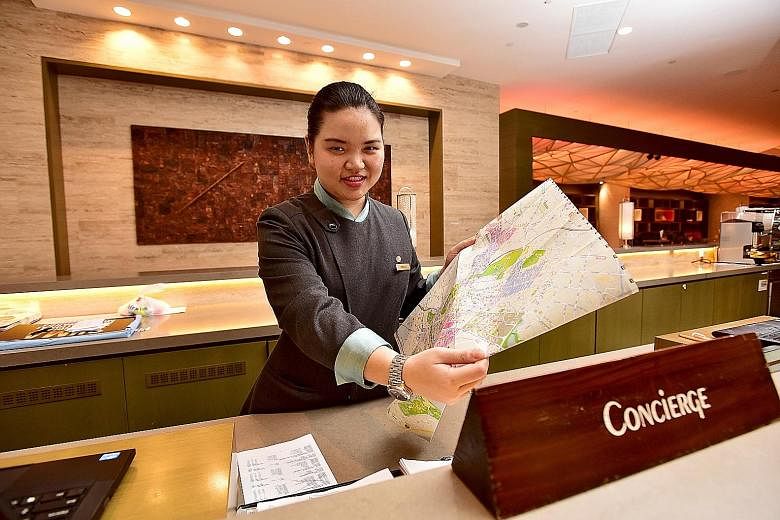From game design to translation and interpretation, universities here are giving one another a run for their money by offering unconventional degree courses to cater to students' varying interests.
Universities contacted said the wider range of courses allows students to pursue their various passions, as well as prepares them for the manpower demands of emerging fields.
Professor Tan Eng Chye, National University of Singapore (NUS) provost and deputy president of academic affairs, said that the diversification of offerings here is a positive development.
Besides reviewing programmes, the university keeps pace with evolving demands by introducing new ones.
-
SOME UNIQUE COURSES IN UNIVERSITIES
-
NATIONAL UNIVERSITY OF SINGAPORE (NUS)
• Bachelor of Science in Business Analytics
• Bachelor of Computing in Information Security
• Bachelor of Science (Honours) with Major in Data Science and Analytics
-
SINGAPORE INSTITUTE OF TECHNOLOGY (SIT)
• Bachelor of Hospitality Business (Hons)
• Bachelor of Engineering with Honours in Pharmaceutical Engineering
• Bachelor of Arts in Game Design
-
SIM UNIVERSITY (UniSIM)
• Bachelor of Arts in Translation and Interpretation
• Bachelor of Science (Human Factors in Safety)
-
SINGAPORE UNIVERSITY OF TECHNOLOGYAND DESIGN (SUTD)
• Bachelor of Engineering (Engineering Product Development)
In line with the Smart Nation push, NUS has launched courses in business analytics and information security to meet the growing need for specialists in cyber security and data analytics. This year, it will introduce a data science and analytics degree course.
Honing skills in unique areas
Prof Tan said: "Students with different inclinations and strengths will have more options."
Professor Kam Chan Hin, senior associate provost of undergraduate education at Nanyang Technological University, said industry needs and global trends are constantly changing. He added: "Students also possess interests in different areas and are looking for non-traditional types of degree programmes to suit their career goals."
In particular, the newer universities, such as the Singapore Institute of Technology (SIT), Singapore University of Technology and Design (SUTD) and SIM University (UniSIM), have introduced some unique courses in recent years.
SIT, for instance, has offered courses in the hospitality business, pharmaceutical engineering and game design.
Its game design degree, awarded by the DigiPen Institute of Technology - dubbed the Harvard University for game developers - produces graduates who are adept at creating interactive experiences, from online shopping systems to museum tours.
SIT's pharmaceutical engineering course, built on a curriculum where engineering and science intersect, grooms graduates who can work not only in the pharmaceutical industry, but also other sectors such as food and life sciences.
Professor Loh Han Tong, SIT provost, said these niche courses have proven popular. He added: "In some cases, the programmes were oversubscribed by more than 10 times."
Classes for SIT's courses are kept small, ranging between 50 and 150 students per intake.
Prof Loh noted that over the past three years, there has been a steady increase in the intake. However, he added that the intake numbers have to be "carefully managed in response to industry needs and demands".
Over at UniSIM - the only private university in Singapore - niche courses include translation and interpretation, and human factors in safety.
UniSIM president Cheong Hee Kiat said the university is dedicated to meeting industry needs in niche but important areas.
The translation and interpretation course, besides providing strong foundations in Chinese and English, introduces students to the latest translation technology.
Students also get to experience using interpretation laboratories, which help to hone their skills in simultaneous interpreting, for instance.
The two labs are equipped with a main control station each, where a teacher can play an audio clip. One lab has interpretation booths and the other has training stations.
In these booths and stations, students have to translate the clip from one language to another.
UniSIM's human factors course - the first of its kind here - equips students with knowledge of human abilities and limitations so that they can tackle work issues including designing an environment that improves safety or performance.
SUTD, which enrolled its first batch of students in 2012, offers a few unique courses in areas such as engineering product development.
Students are exposed to at least 20 projects during their course of study, and are encouraged to bring their innovations to life at the 24-hour fabrication laboratory, which has devices ranging from laser cutters to 3D printers.
SUTD noted that its student intake has grown progressively. Its pioneer cohort of about 300 students graduated last August, and it has just admitted its fifth batch, of about 460 students.
Some students enrolled in the newer universities said they chose them because of the specialised courses or the unique approach.
Ms Aurielle Nicole Cheok, a second-year SIT student, signed up for a hospitality business course - one of the niche offerings - and does not regret pursuing her passion.
The 22-year-old discovered a love for interacting with people from around the world while studying for a tourism and resort management diploma here.
"Although it is challenging, I've seen how rewarding it is to be working in this industry," she said.
Mr Lau Siaw Young, 24, chose SUTD's popular information systems technology and design course as he sees growth potential in the software industry.
The final-year student was drawn by SUTD's strong focus on hands- on projects and said it would be exciting to see if such unique approaches will "produce graduates on a par with or even better than those from the other universities in Singapore".


